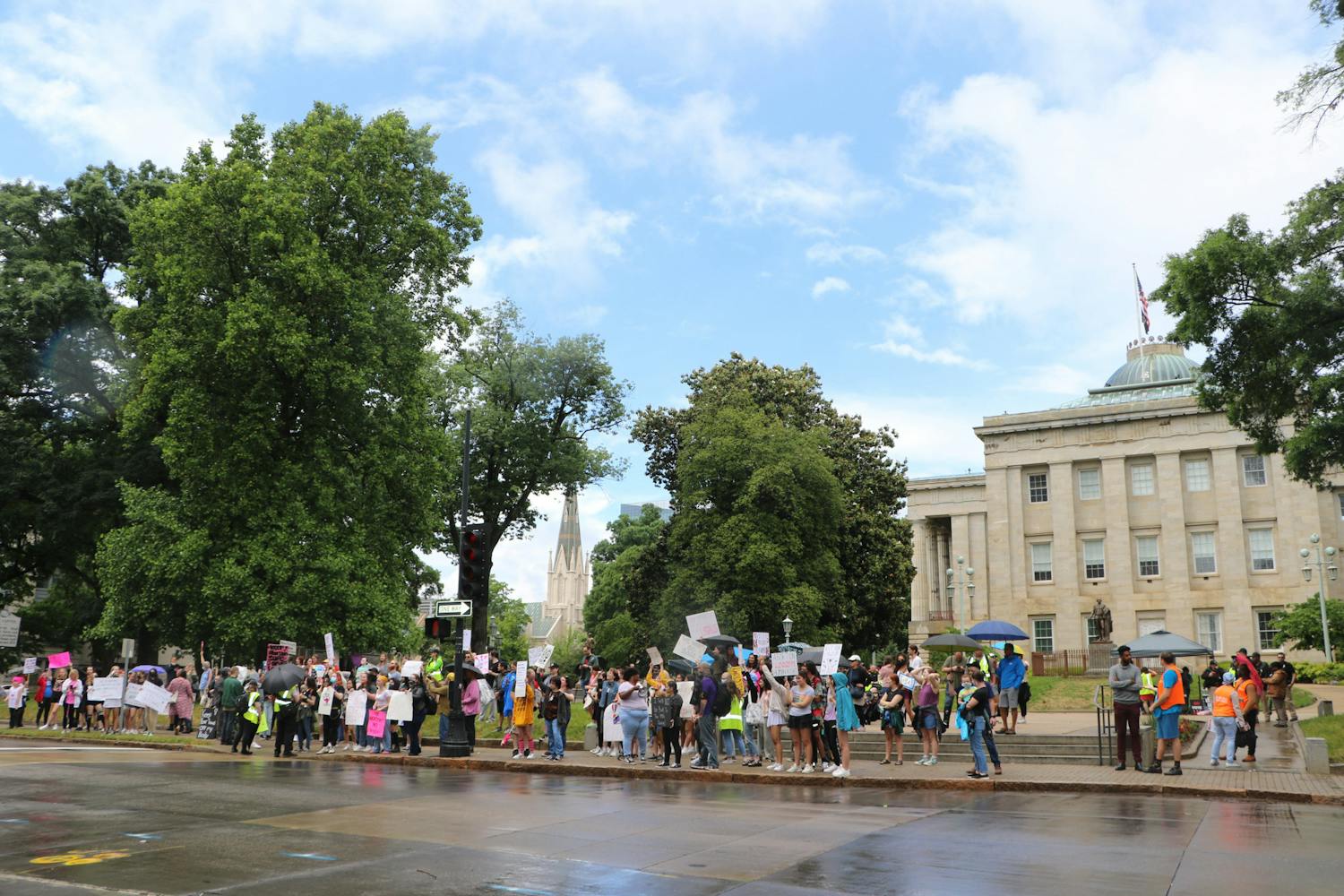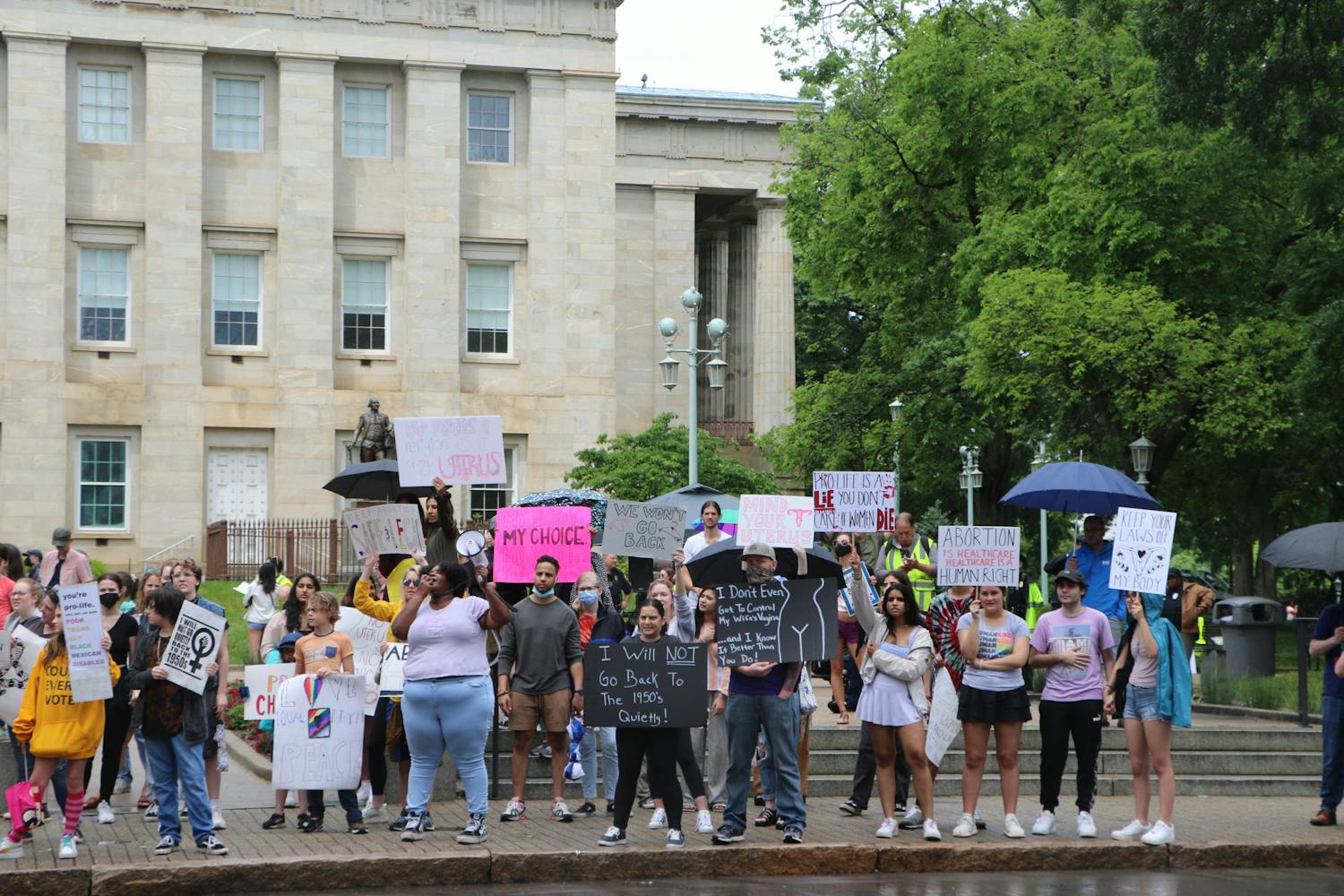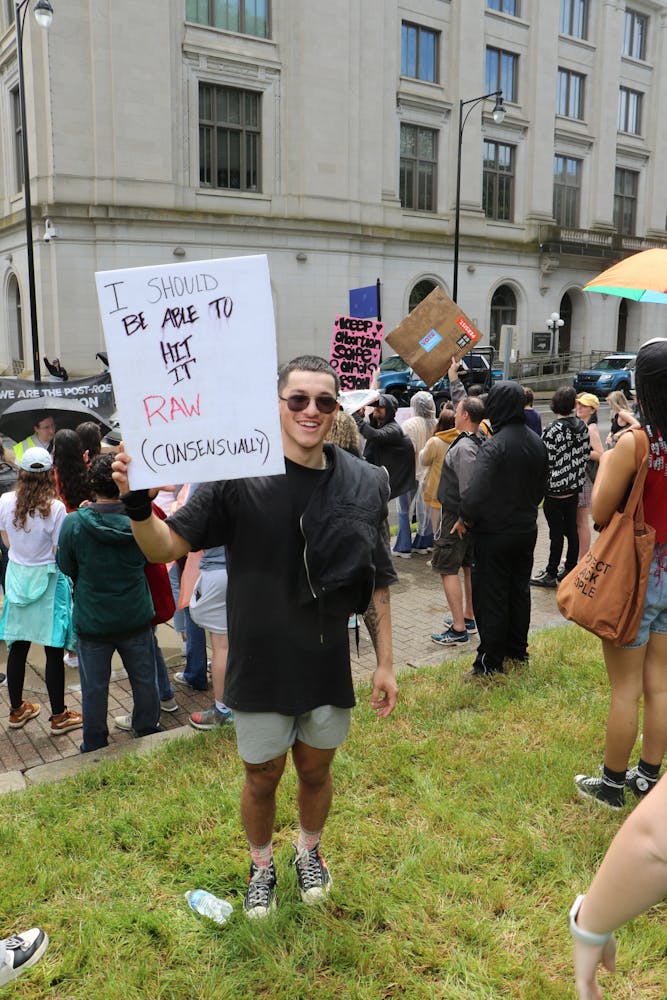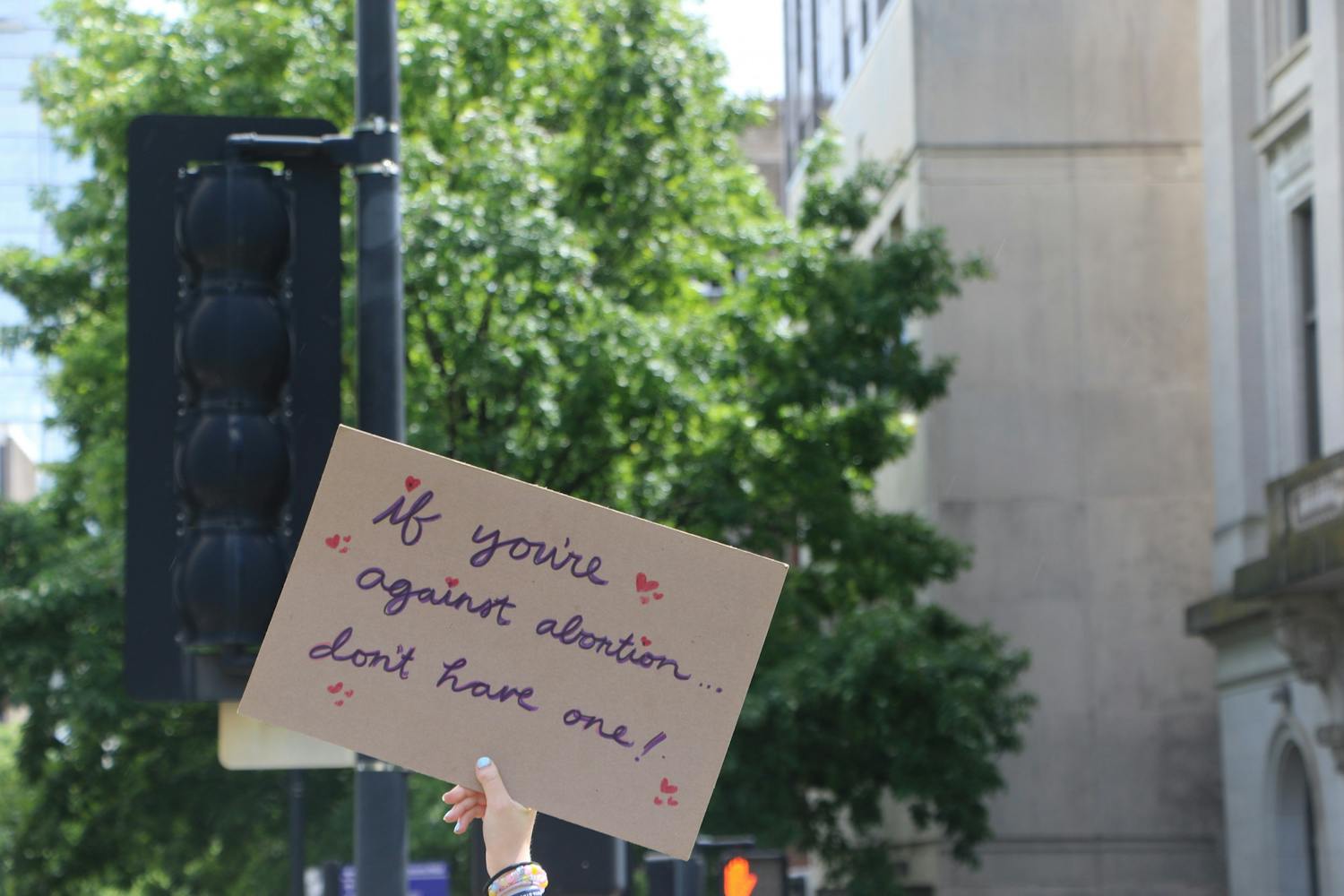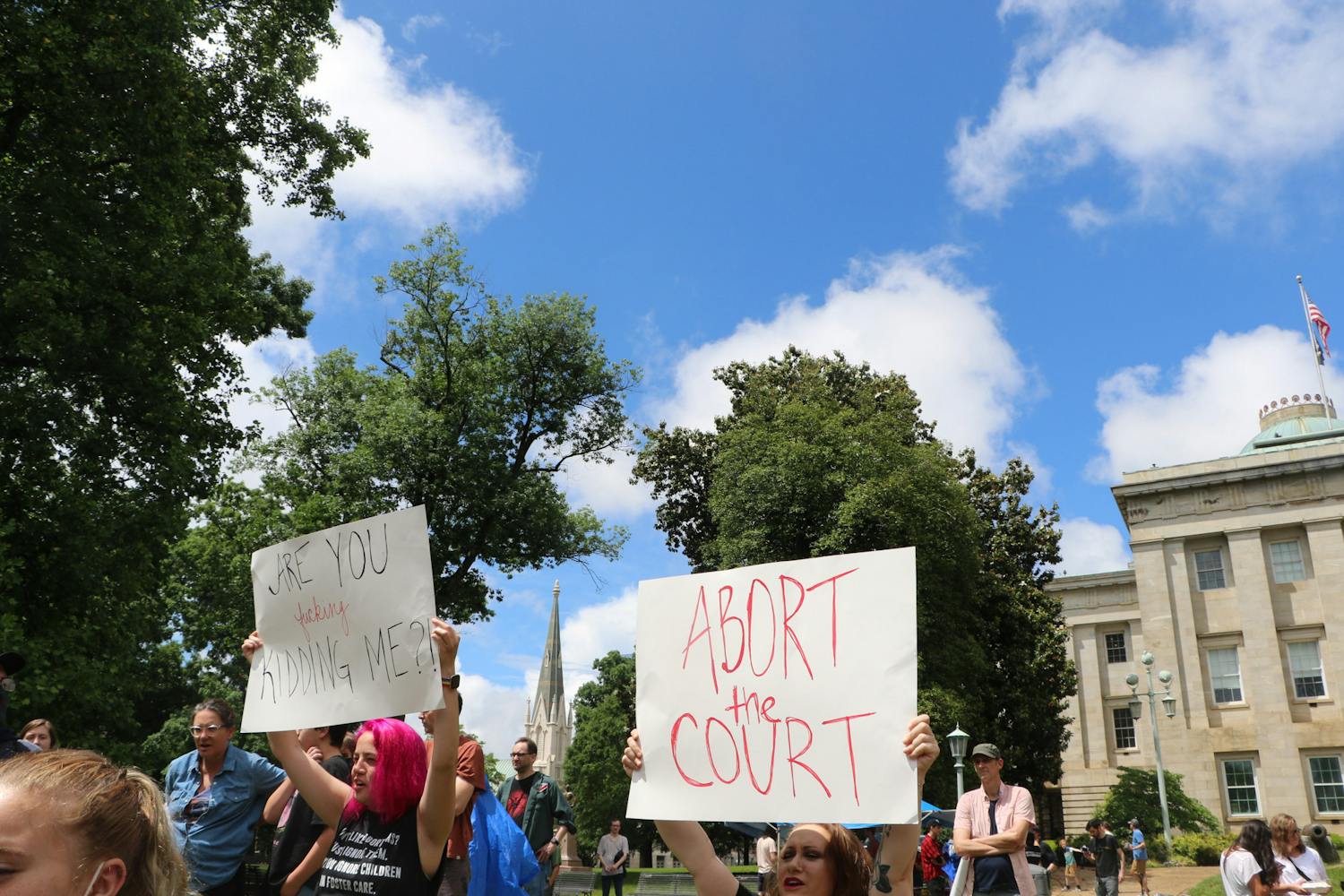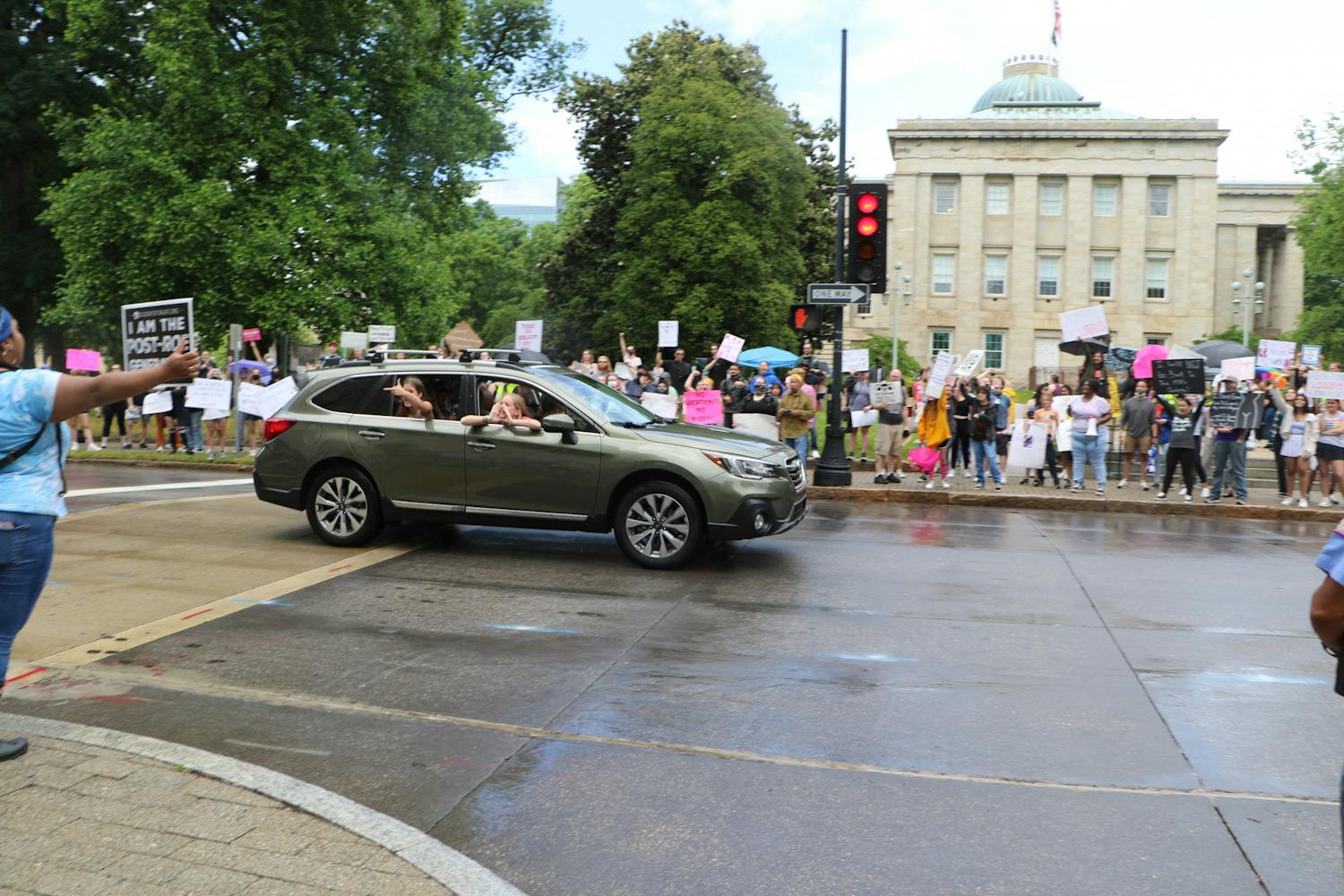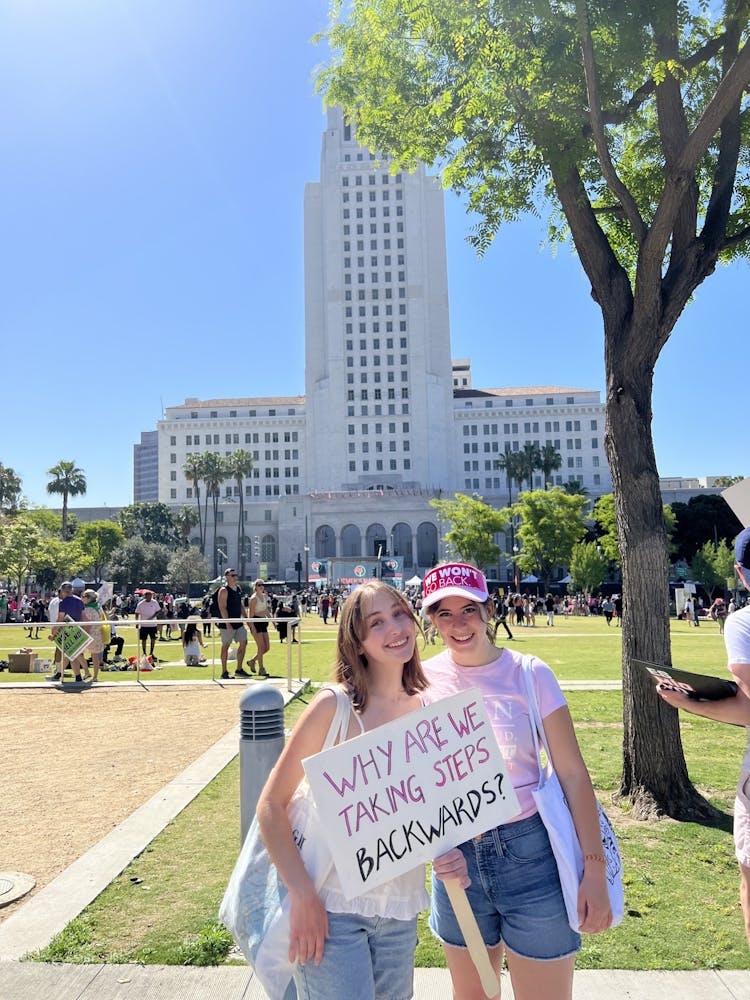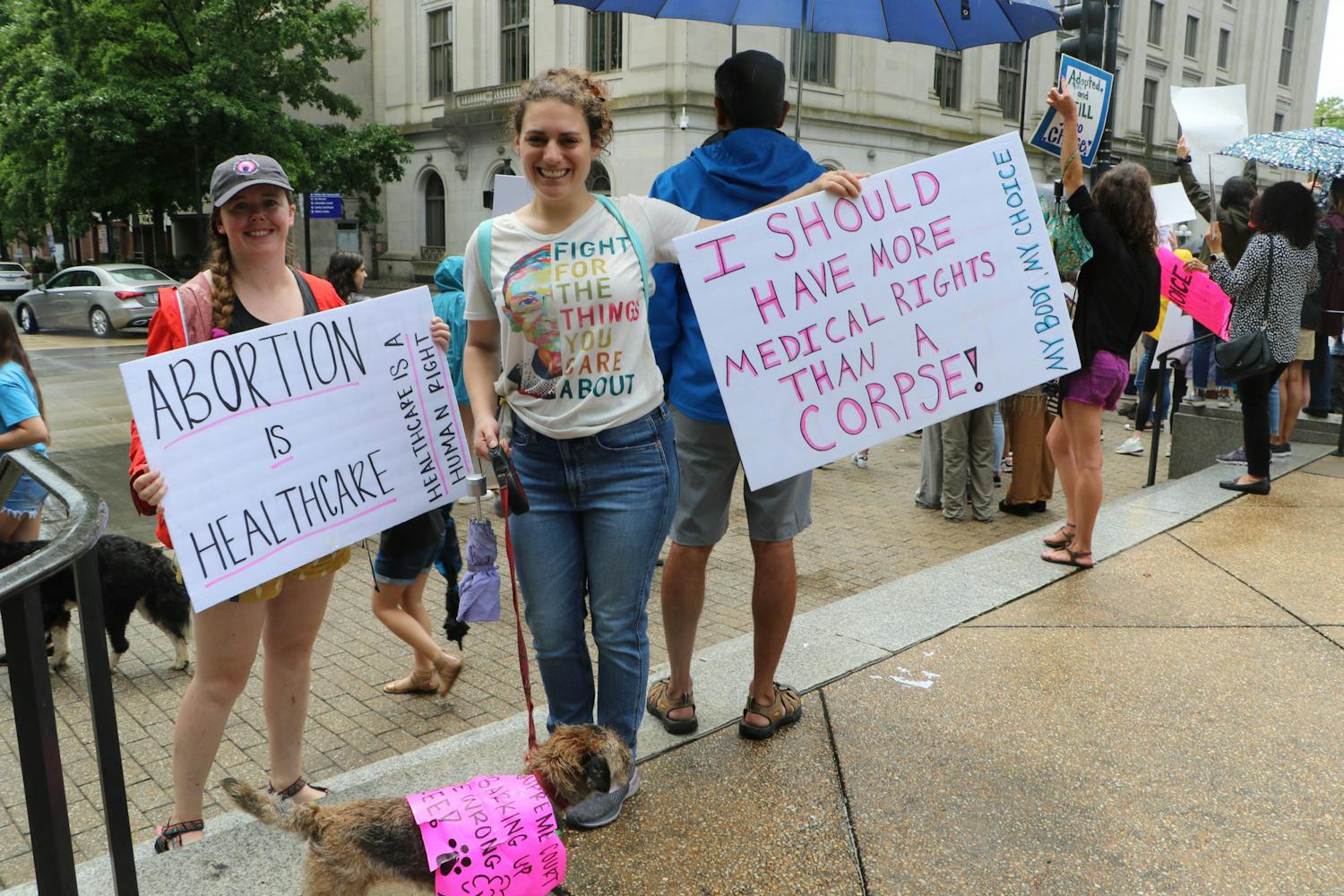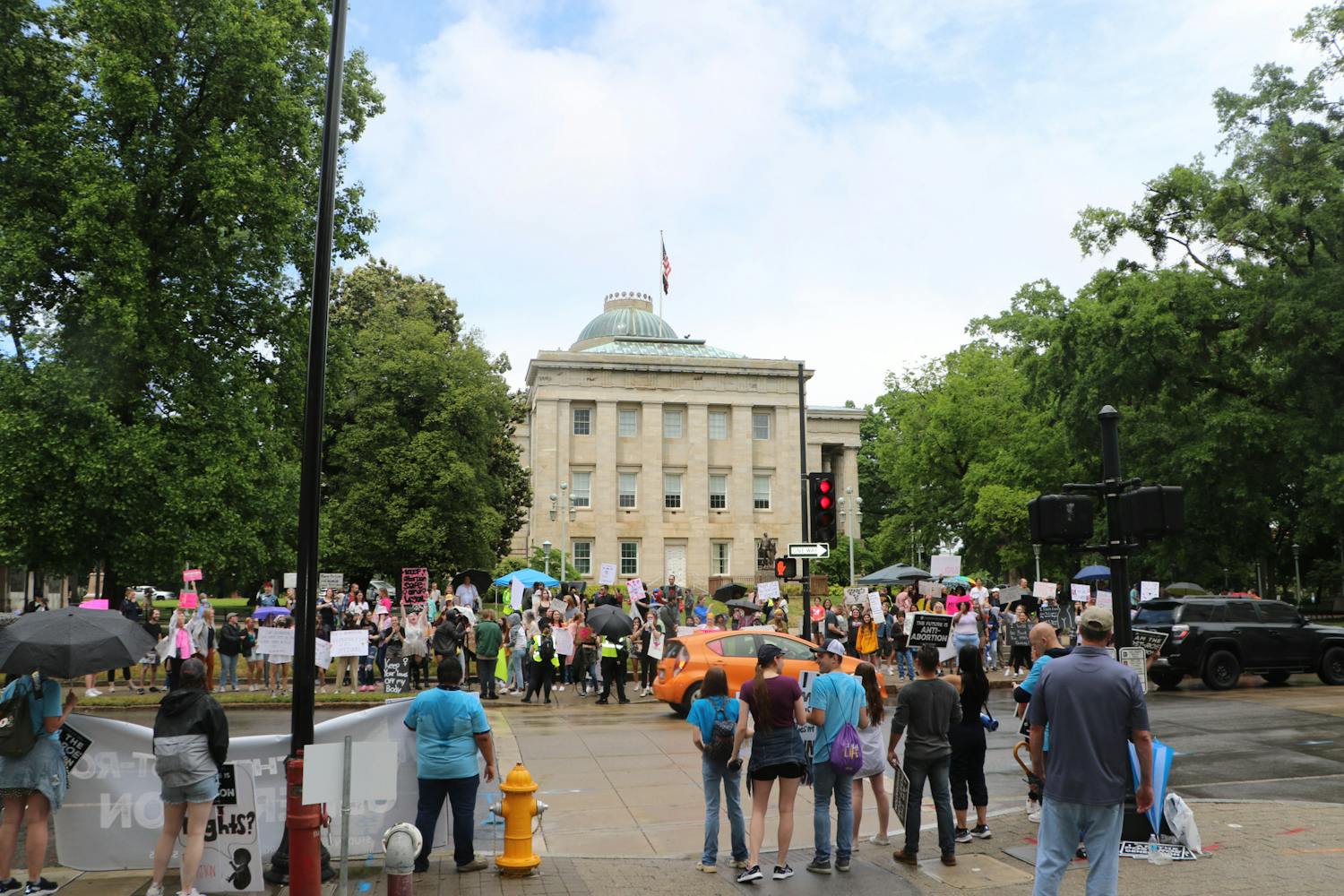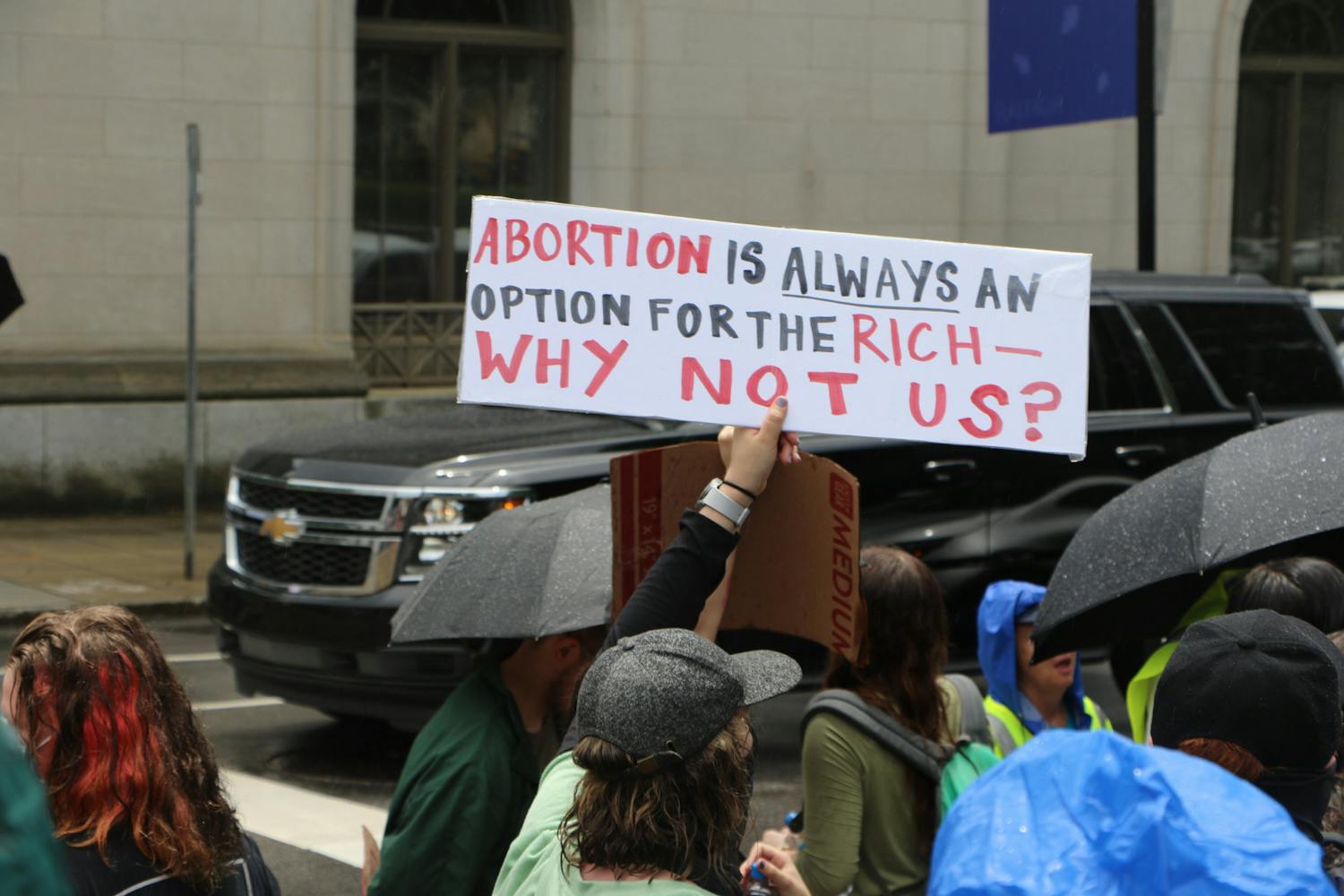“We hold that [Roe v. Wade] and [Planned Parenthood v. Casey] must be overruled,” wrote Justice Samuel Alito in an initial majority draft opinion on Dobbs v. Jackson Women’s Health Organization. The 98-page document, obtained by Politico, was leaked to the public on May 2 and has since reignited the debate around abortion rights in the United States.
Both Roe v. Wade and Planned Parenthood v. Casey uphold a woman’s right to terminate their pregnancy under the 14th Amendment. If these landmark cases are overturned, abortion access would be left in the hands of the states. Thirteen states currently have “trigger laws” in place, banning abortions almost immediately in the event that Roe is overturned.
Following public outcry, Planned Parenthood organized nationwide “Bans Off Our Bodies” rallies to unite against the Justices’ decision. On Saturday, May 14, demonstrations took place across the United States. From coast to coast, people of diverse walks of life gathered outside courthouses to protest and share their stories.
Los Angeles, California
California has a long history of supporting abortion, and state legislators have been bracing for an influx of abortion-seekers across state lines for months. Thirteen bills have already been introduced codifying protections for out-of-state patients. And on Saturday morning, thousands gathered outside Los Angeles City Hall to support women in less abortion-friendly states.
One protester, Patricia Perez, stood in the sweltering heat, her body draped in a thick scarlet robe and her hair concealed beneath a white bonnet. Her clothing was a reference to The Handmaid’s Tale, a novel and television series portraying a dystopian future with extreme governmental regulation of womens’ bodies.
“The costume is just a very fast way for people to recognize what can happen, even though it’s happening already,” Perez said.
Perez found news of the leaked draft “gut-wrenching,” describing it as a “setback of women’s health.”
Across the lawn, Lautaro Galvez expressed similar beliefs. Standing beside his wife and two young sons, he described current events as “outrageous.” His activism was primarily driven by concern for the rights of his loved ones.
“I just want to show my support, first of all for my wife, just to show everybody that support,” Galvez said. “She can choose. She's a person just like I am.”
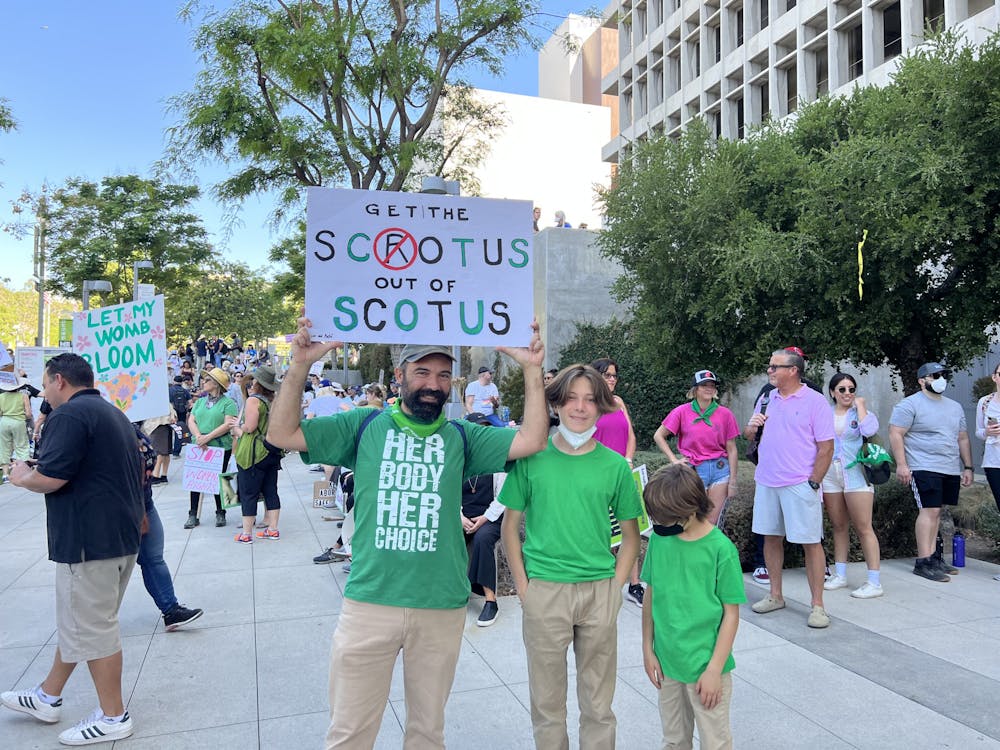
Raleigh, North Carolina
According to the Guttmacher Institute, a pro-choice research organization, North Carolina does not have trigger laws and is considered one of the three Southern states that will not immediately ban or restrict abortion. Though the North Carolina General Assembly is dominated by conservatives, North Carolina remains an enclave for abortion-seekers in the South partly because the state’s Democratic governor, Roy Cooper, holds veto power.
Protestors in Raleigh gathered at the State Capitol at 11 a.m., then marched around the legislative building and N.C. Supreme Court. When protestors returned, they encountered a smaller Students for Life counterprotest, which didn’t disperse until 3 p.m.
The day of action was the work of multiple groups, including Pro Choice with Heart and Women’s March. Katherine Johnson, one of the main organizers of the Raleigh protest, described the movement in North Carolina as a fight “not just for all North Carolinian women, but for all Southern women.”
Johnson saw the protest as moving beyond abortion to “universal freedoms” for those who were unable to access reproductive services while Roe v. Wade was secure.
“It's not just about abortion anymore. There have been people who have not been able to access abortion and reproductive services, even when we could still count on Roe,” she said. “It's time to bring other people to the table who have been affected before Roe was taken. It's going to take all of us, and it's time for us to go to their house."

Get The Chronicle straight to your inbox
Sign up for our weekly newsletter. Cancel at any time.
Jennifer Kilpatrick, a marshal at the rally, echoed Johnson’s sentiments.
“This is not just about abortion rights—this is also an attack against minorities, it’s an attack against the working class, it's an attack against LGBTQ people,” she said. “No matter what our political backgrounds are, we fight for rights for us, not for the people at the top.”
Members of Socialist Alternative, an active leftist national organization, held a booth at the rally. One Socialist Alternative member expressed her exhaustion with political messaging within the pro-choice movement.
“This messaging we get from some women's rights nonprofits that are really big right now is that we need to just wait and vote for Democrats, and it's clear—we already voted for Democrats,” she said. “That's not the way it looks right now; the Democrats are not really putting up the fight that they could.”
Across the street, Students for Life counterprotestors held signs, such as, “I am the post-Roe generation.”
Ben Cederberg, the president of Students for Life at UNC Wilmington, defended his movement against anti-feminist allegations and pointed to his true point of the protest.
“The only reason why we’re here is because we love babies,” he said. “We know that it's bad to kill a child because they're defenseless and innocent, and it's even worse for a baby—but when it comes to something younger than a baby, why is it suddenly okay?”
Brooke Larkin, the southeast regional coordinator for Students for Life, pointed to the fact that the majority of the pro-life protestors were women.
“We are out here because we want to support pregnant and parenting women,” she said. “Women are better, women are stronger, women can have a child and finish school [and] women can have a child and pursue their career.”
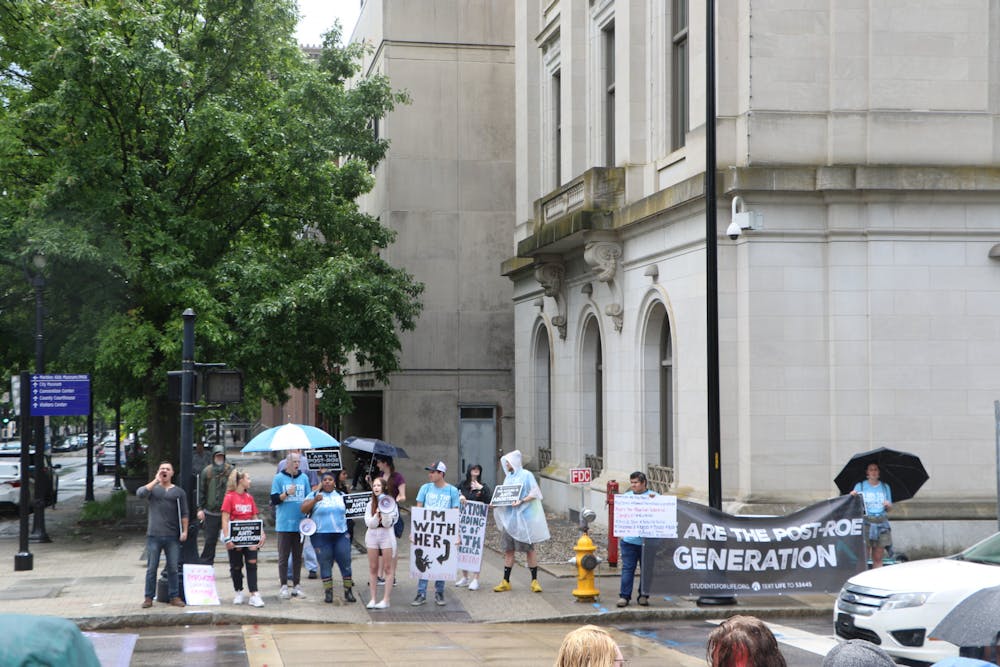
Washington, D.C.
Like North Carolina, Washington, D.C. may also be in a tenuous political position. D.C. law currently has one of the least restrictive abortion laws in the nation, legalizing the procedure at all stages of pregnancy. However, the Constitution grants Congress jurisdiction of the District “in all cases.” This would make the District vulnerable if Republicans controlled Congress in a post-Roe v. Wade nation, despite 70% of adults in the District believing that abortion should be legal in all or most cases.
The D.C. rally began at the Washington Monument and ended with a march down Independence Avenue to the Supreme Court, where Students for Life counter protestors stood.
At the Supreme Court, a broad range of abortion rights activists and protestors gave speeches. Speakers included members of labor unions, reproductive justice groups and well-known pro-choice organizations like EMILY’s List.
Duke junior Will Monahan noted that many of the speakers were Black and Latina women, many of whom placed emphasis on the intersection between reproductive and racial justice. Two speakers at the protest also shared their own experiences with their abortions.
“One of the women is in her 70s, and so at the time, she was living in Texas, and it was illegal in Texas because it was pre-Roe v. Wade, so she had to go to Juarez in Mexico to get an abortion, even though it was also illegal there,” he said.
Like in Raleigh, pro-choice protestors clashed with pro-life counter protestors. Although a few pro-choice protestors, including Monahan, attempted to engage with counter protestors, he did not find the conversations “very fruitful.”
“I'd say it was fairly hostile–it was kind of a mix between people just shouting each other down,” he said. “Since there are more pro-choice protestors, the pro-life people kind of got drowned out.”
Monahan wishes he could consider himself surprised about the leaked decision. He said that when the Supreme Court heard Dobbs v. Jackson Women's Health Organization, a pending case that could ban abortions after the first 15 weeks of pregnancy, “it seemed pretty clear that they were going to at least partially overturn Roe, [but] I was holding out hope that they wouldn't overturn it completely.”
Monahan believes the Supreme Court’s possible overturning of abortion rights leaves open the opportunity to overturn gay marriage and contraceptive access. He worries that other landmark decisions under the 14th Amendment are now more vulnerable. One such case is Obergefell v. Hodges, which requires states to license and recognize same-sex marriage.
“As important as abortion is, they're not going to stop there,” he said. “You have to keep organizing and anticipate what the next thing is going to be.”
Charleston, South Carolina
In downtown Charleston, hundreds of people gathered in Marion Square. Though South Carolina does not have a “trigger ban” in place, its laws regarding abortion are stricter than those of Los Angeles.
Currently, an abortion cannot be performed after 20 weeks of pregnancy unless there are serious health concerns for the mother. The patient is also required to get an ultrasound and consult with a physician 24 hours before the procedure.
Pro-choice South Carolinians fear that the controversial “heartbeat bill” could be enacted in a post-Roe future. The bill, which was signed into law by Gov. Henry McMaster in 2021, was blocked by the courts using the legal underpinnings of Roe. It would outlaw abortion after the detection of a fetal heartbeat at around six weeks—before many women even know they’re pregnant.
Duke sophomore Sophie Rees was among the group of protestors at Charleston’s Bans off Our Bodies rallies. Rees described her fellow protestors as coming from various walks of life: college students, mothers with their children, elderly women with signs that read “I’ve been fighting for this for 50 years.”
Listening to the personal stories of pro-choice speakers was a particularly powerful experience for her. Rees recalled two stories: one from a victim of childhood sexual assault and one from a woman who performed a risky at-home abortion when she was 16.
“Stories like that kind of make you understand the issue on that deeper level and understand that it's not just about the lives of the fetuses,” she said. “It's about the lives of actual living and breathing women.”
Though there were some counter-protestors who drove by and verbally harassed attendees, the pro-choice rally ran smoothly, Rees said.
After attending the protest, Rees and her friend were inspired to volunteer with Planned Parenthood and Emerge South Carolina, a political organization which recruits and trains Democratic women to run for office.

Sevana Wenn is a Trinity sophomore and features managing editor of The Chronicle's 118th volume.

Audrey Wang is a Trinity senior and data editor of The Chronicle's 120th volume. She was previously editor-in-chief for Volume 119.

